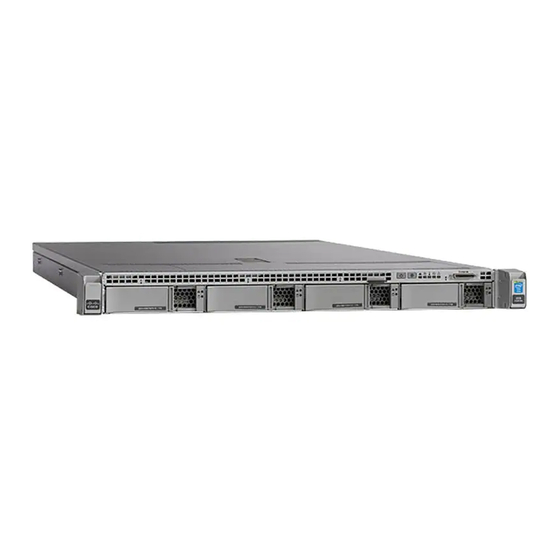Cisco 2000 Handbuch "Erste Schritte - Seite 27
Blättern Sie online oder laden Sie pdf Handbuch "Erste Schritte für Server Cisco 2000 herunter. Cisco 2000 31 Seiten.

Before You Begin
Before preconfiguring the appliance, collect the network settings, licenses, and other pertinent information for the
staging location and the target location.
Note:
It can be helpful to create a spreadsheet to manage this information at the staging location and the target
location.
During the initial setup, you configure your appliance with enough information to connect the appliance to the
network and install the system.
Required Preconfiguration Information
At a minimum, you need the following information to preconfigure your appliance:
The new password (initial setup requires changing the password)
The hostname of the appliance
The domain name of the appliance
The IP management address of the appliance
The network mask of the appliance at the target location
The default gateway of the appliance at the target location
The IP address of the DNS server at the staging location, or, if accessible, the target location
The IP address of the NTP server at the staging location, or, if accessible, the target location
Optional Preconfiguration Information
You can change some default configurations, such as:
Set the time zone if you choose to manually set the time for your appliances
Set the remote storage location for automatic backups
Set the Lights-Out Management (LOM) IP address to enable LOM
Note:
In some power cycle scenarios, the baseboard management controller (BMC) of a 3D7050 connected to the
network via the management interface could lose the IP address assigned to it by the DHCP server. Because of
this, Cisco recommends you configure the 3D7050 BMC with a static IP address. Alternately, you can disconnect
the network cable and reconnect it, or remove and restore power to the device to force renegotiation of the link.
Preconfiguring Time Management
Keep in mind the following considerations:
Cisco recommends that you synchronize time to a physical NTP server.
If the network at your staging location can access the DNS and NTP servers at the target location, use the IP
addresses for the DNS and NTP servers at the target location. If not, use the staging location information and
reset at the target location.
Use the time zone for the target deployment if you set the time on the appliance to the manually instead of
using NTP; see the Firepower Management Center Configuration Guide for more information.
Cisco Firepower Management Center Getting Started Guide
Preconfiguring Firepower Management Centers
27
